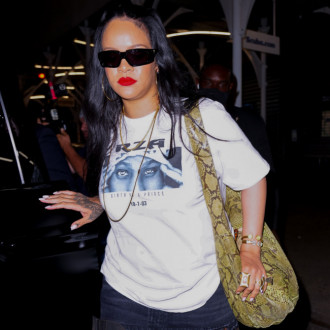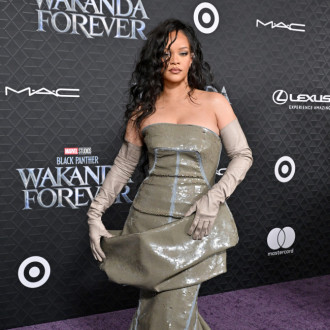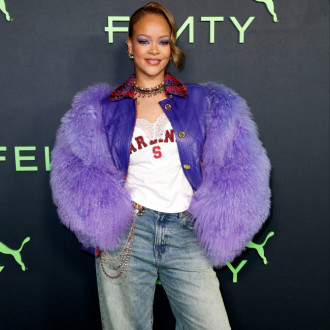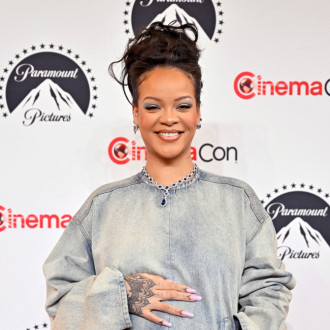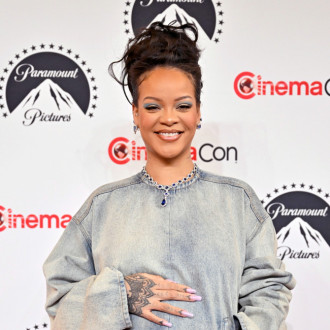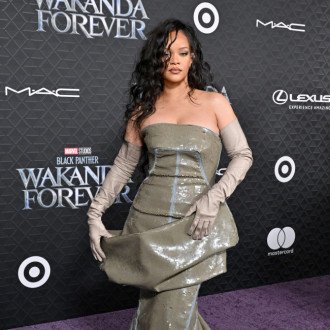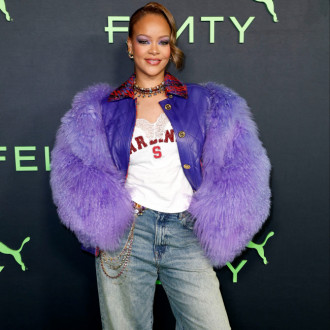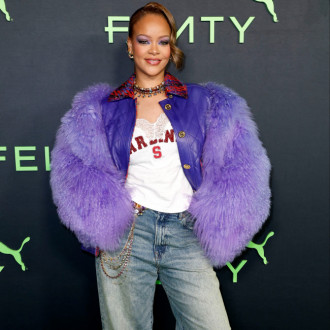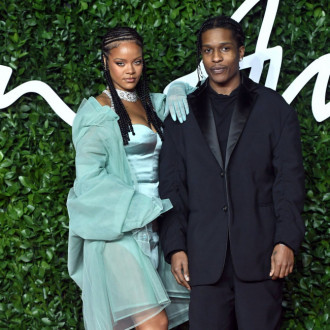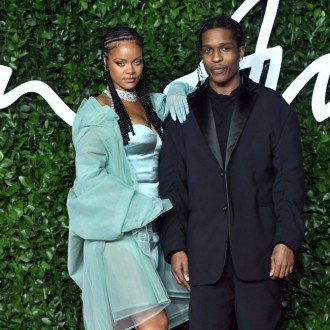Rihanna confirms Fenty Skin products will hit stores on Boxing Day
By Bang Showbiz in Fashion / Beauty on 10 December 2020
Rihanna's Fenty Skin line will be available to purchase in-store from Boxing Day (26.12.20).
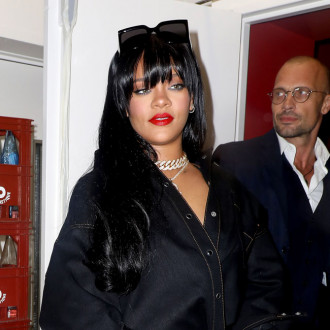
Rihanna has confirmed Fenty Skin products will be available at stores worldwide from December 26.
The beauty mogul took to Instagram to share a promo shot of her making sure the products were set and ready to go at Sephora this week.
The collection will also be available to buy at Harvey Nichols and Boots in the UK.
The ‘Work’ hitmaker captioned the shot: "Just me pullin up to Sephora to make sure @fentyskin is loaded! Straight like dat, we in stores from December 26th!! Available at @sephora, @harveynichols, and @bootsuk !! Til then, see you at FentySkin.com (sic)”
Meanwhile, Rihanna recently admitted she wants men to stop thinking they “don’t have permission” to use skincare products.
The 32-year-old singer and businesswoman - who launched her Fenty Skin brand in July, as an extension of her hugely successful Fenty Beauty range - said she’s determined to end the stigma surrounding men’s skincare, as she doesn’t want anyone to feel as though they’re “not allowed” to care for their body.
Speaking to rumoured beau A$AP Rocky - who starred in her launch campaign - for Vogue’s ‘Face to Face’ series, she said in the summer: “Men love their skin, and they take care of it, but they feel obligated almost to only use products that are for men because anything beyond that feels too feminine, it’s not for them, they’re not allowed, they don’t have permission.”
Rihanna opted to make her Fenty Skin range as gender neutral as possible so that everyone could “feel included”, especially men.
She added: “The topic of inclusivity has become something that our brand has fallen upon, just by sincere and organic perspective. Like, my idea of beauty has always been a black woman, so the way I’ve expanded that idea was doing skincare in a more gender neutral idea where men feel included.”
And the ‘Diamonds’ hitmaker would love to see even more inclusivity in the beauty industry, as she said she wishes the “leaders” of the industry were a “more diverse set of pioneers”.
She explained: “I wish the leaders of the beauty industry were a more diverse set of pioneers, who have not just experienced the culture but have experienced the negligence in the industry when it comes to skin tone or skin type.
“I feel like there’s so many voids to be filled, and we will only know that by the pioneers that have experienced those voids and the lack of their representation in the industry. So I think by having an eclectic array of skin types, skin tones, different cultures and people, and different representations of religions and cultures, you would have the most information on where to go next.”
Contactmusic
Suggested

Leisure Festival - Dreamland in Margate
On the same day that Glastonbury welcomed back Margate's adopted sons, The Libertines, Margate itself put on it's very own Leisure Festival as it...
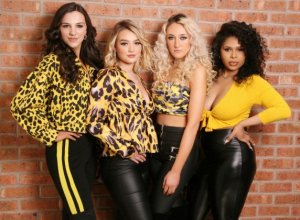
Pretty Fierce talk to us about collaborating with Doja Cat, emetophobia, arena tours and staying "true to yourself" [EXCLUSIVE]
Sheffield's very own all girl group Pretty Fierce are still on a high after the recent release of their debut single - 'Ready For Me'.

Will Varley & Jack Valero - The Astor Theatre Deal Live Review
Three nights before the end of his current tour Will Varley returned to his home town of Deal to delight a sold out crowd in The Astor Theatre.

WYSE talks to us about her "form of synaesthesia", collaborating with Radiohead's Thom York and the prospect of touring with a band [EXCLUSIVE]
With only a few days to go before Portsmouth based songstress and producer WYSE releases her new single, 'Belladonna', we caught up with her to find...
Advertisement

Bay Bryan talks to us about being a "wee queer ginger", singing with Laura Marling and being inspired by Matilda [EXCLUSIVE]
Colorado raised, Glasgow educated and Manchester based Bay Bryan is nothing if not a multi-talented, multi-faceted artist performing as both...

Keelan X talks to us about staying true to "your creative vision", collaborating with Giorgio Moroder and being "a yoga nut" [EXCLUSIVE]
Former Marigolds band member Keelan Cunningham has rediscovered his love of music with his new solo project Keelan X.
![Luke De-Sciscio talks to us about having the courage to be yourself, forgiving that which is outside of one's control and following whims [EXCLUSIVE] Luke De-Sciscio talks to us about having the courage to be yourself, forgiving that which is outside of one's control and following whims [EXCLUSIVE]](https://images.contactmusic.com/images/home/homepage/luke-de-sciscio-abof-a.jpg)
Luke De-Sciscio talks to us about having the courage to be yourself, forgiving that which is outside of one's control and following whims [EXCLUSIVE]
Wiltshire singer-songwriter Luke De Sciscio, formally known as Folk Boy, is set to release is latest album - 'The Banquet' via AntiFragile Music on...
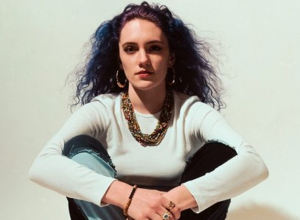
Annie Elise talks to us about the challenges a female producer has to face and "going through a year of grief and sickness" [EXCLUSIVE]
Electronic music pioneer and producer Annie Elise says that the release of her first EP - 'Breathe In, Breathe Out' feels "both vulnerable and...
Advertisement
Movies and Trailers

Valerian and the City of a Thousand Planets Movie Review
It's been 20 years since French filmmaker Luc Besson shook up the sci-fi genre with...

Valerian And The City Of A Thousand Planets Trailer
Valerian (Dane DeHaan) and Laureline (Cara Delevingne) are partners. Skilled government agents whose job it...

Valerian And The City Of A Thousand Planets Trailer
For Luc Besson's latest foray into the sci-fi stratosphere, he has decided to bring the...

Home Movie Review
A sharp script and especially colourful imagery make this animated romp a lot more fun...

Annie Movie Review
A solid cast bodes well for this unnecessary remake of the 1982 movie (based on...

Home Trailer
The overly-confident alien race, the Boov, have faced some difficulties in their time, but they've...
Advertisement

Home Trailer
Captain Smek is the leader of a group of aliens called Boov who are stranded...

This Is the End Movie Review
Comedies don't get much more self-referential than this film, in which a bunch of old...

This Is The End Trailer
When actor James Franco threw a party for his fellow movie stars including the star-studded...

Battleship Movie Review
You'd have to go back to 1998's Armageddon to find another film that so adeptly...

Battleship Trailer
The ocean is vast. Many parts of it are unexplored by man; those parts make...
